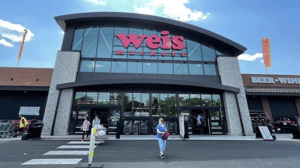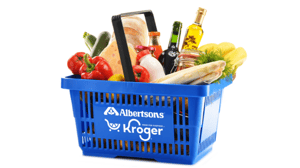New Costco CEO Tells SN: If It Ain't Broke, Don't Fix It
September 26, 2011
ELLIOT ZWIEBACH
ISSAQUAH, Wash. — How do you succeed a legend?
For Craig Jelinek, the incoming chief executive officer of Costco Wholesale Corp. here, the answer is simple.
“I can't be Jim Sinegal — I can only be Craig Jelinek. Nor am I interested in ‘making my mark’ on this company. I've spent 28 years working with ‘the legend,’ and hopefully I've learned a lot from him.”
Sinegal, 75, the co-founder of Costco, announced plans earlier this month to retire on Jan. 1, though he will stay on for a year in an advisory capacity.
Costco's volume for the fiscal year ended Aug. 30 is estimated to be approximately $88 billion.
Costco operates three businesses, Jelinek noted — the core warehouses (521 in the U.S., 63 outside the U.S.); eight business centers in the Western U.S.; and an e-commerce business — “so there's enough on our plate that's working for us to stay focused on what we're doing now,” he told SN.
“This is not a company that's in trouble,” he said, “so there's no need to make a lot of changes — that would be the worst thing anyone could do.
“We have a very strong culture here, and I'm part of that culture, and I'm very comfortable moving forward without making any changes.
“We've always been open to trying things if they have been thought through. But our view is, we want to keep the business pretty much the way it is — and it can be so easy to drift away from that.”
Chuck Cerankosky, an analyst with Northcoast Research, Cleveland, told SN Jelinek brings a lot of experience to his position. “He has been part of the growth of a very successful company, so I don't anticipate any significant changes.
“However, I would expect the company to continue to make adjustments to its merchandising as the economy changes.
“As the economy has weakened, Costco has adjusted its overall mix to lean more heavily on food and consumables rather than the treasure-hunt type of merchandise. And as the economy gets better, I would expect the mix to reflect that, with more emphasis on general merchandise.”
Jelinek said he does not plan any changes to Costco's food offerings. “We're always going to look for ways to improve the grocery assortment to offer value, and that's ongoing,” he said.
PRICE DISCIPLINE
Costco also intends to stick to its guns on pricing, Jelinek noted.
“We will run the business to give the best possible value to our members, which means we want to be the last ones to raise prices. But we're not in business to get more margin, and we will never sell below cost.
“We will maintain the same pricing disciplines we always have to achieve 14% margins, and that won't change. And if we can't bring value to members, then we will drop a product.”
The company also plans to maintain its expansion level at about 25 new warehouses a year, Jelinek said.
“We believe that's doable, though of course we don't know what will happen in the next two or three years,” he noted.
Costco operates in 42 states in the U.S., and while it could operate in all 50 at some point, that's not a goal, he said.
It expects to continue to build warehouses in the range of 145,000 to 148,000 square feet within the U.S. and slightly smaller outside the U.S. “because many of those stores don't carry liquor,” Jelinek pointed out.
He said he anticipates further expansion in Asia — particularly South Korea, Japan and Taiwan — “because we think we do well there, and we see opportunities to grow” — as well as Canada, Mexico and Australia.
Jelinek, 59, has been with Costco since 1984. He has spent most of his career in the membership-store industry — starting at age 17 as a box-boy for Fed-Mart, a San Diego-based discount department store open exclusively to federal employees. (Fed-Mart was founded by Sol Price, who subsequently founded Price Co., which merged with Costco in 1993.)
Jelinek was a store manager at Fed-Mart when it went out of business in 1983. He spent a little more than a year working for Lucky Stores before moving to Seattle in 1984 to manage Costco's sixth warehouse.
A year later he was named regional manager for Costco's California operations, and when the company split its operations in the state in half in 1987, Jelinek ran the Southern California region and oversaw the company's expansion to Hawaii and Las Vegas.
He was named senior vice president in 1992 to oversee Costco's West Coast operations; after Costco merged with Price Co. a year later, Jelinek was named senior vice president, Pacific Northwest; and when the company split into multiple divisions in 1993, he was named executive vice president for the Northwest, Midwest and San Francisco Bay regions.
He became executive vice president, merchandising, for the entire company in 2003 and president and chief operating officer in February 2010.
“At that point it was logical that I would probably succeed Jim, but it wasn't official until Jim set the timing of his retirement and the board approved me as successor,” Jelinek explained.
Asked how he differs from Sinegal, Jelinek replied, “We're probably about the same, though I may be a little less uptight.”
Jelinek said he meets with Costco's management team every week to discuss the company, “but our offices are open, which means we're able to talk about long-term concerns all the time,” he explained.
“That's something you can't lose sight of — that you have to think long term about how you run the business while at the same time realizing the need to maintain the culture of a successful operation. I believe we can continue the culture and the values we've developed over the years.”
About the Author
You May Also Like






